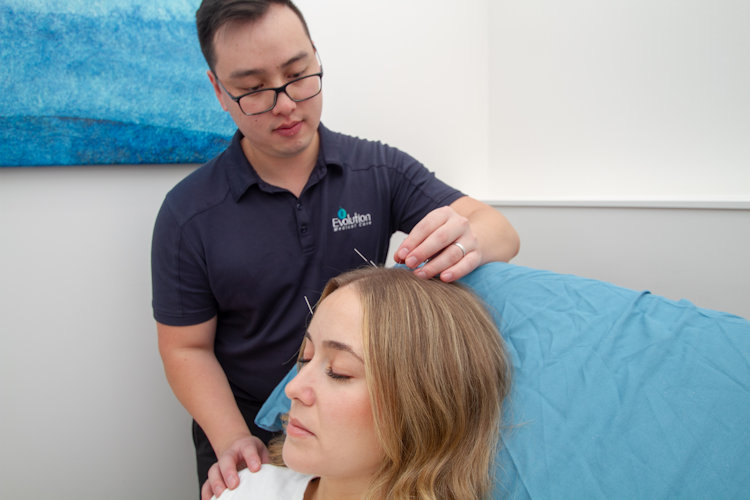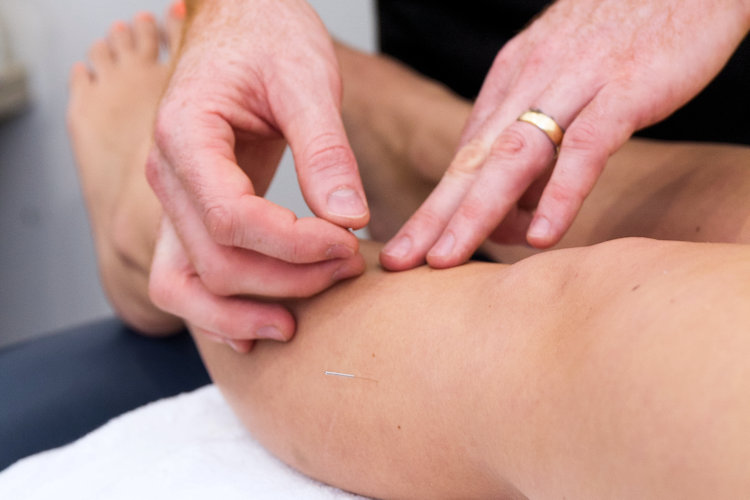Acupuncture has been gaining popularity as a natural therapy to support women with PCOS and for good reason. Acupuncture has been shown to have numerous benefits for women with PCOS, including regulating hormones, managing weight, improving fertility, reducing inflammation, and boosting emotional well-being. Read on to learn how Acupuncture can support your health and improve your quality of life if you are living with PCOS.
Acupuncture’s Advantages for PCOS
Acupuncture has numerous biochemical effects on the body to assist with PCOS. It can, for example, enhance the release of growth factors. Growth factors are molecules that play a crucial function in controlling cell growth and survival. When growth factors are released, they stimulate the production of new cells and blood vessels, which can aid in the healing process and promote tissue regeneration. Acupuncture has also been demonstrated to reduce inflammation and increase blood flow to specific parts of the body. This increased blood flow supplies oxygen and nutrients to the body to encourage healing, which can intern assist to minimise discomfort felt by PCOS sufferers.

Acupuncture Regulates Hormones
Hormonal imbalances, which can contribute to irregular menstrual cycles and infertility, are one of the defining characteristics of PCOS. Acupuncture has been shown to have specific impacts on PCOS-related hormones and other biochemical processes. By regulating hormones, Acupuncture can assist sufferers with PCOS to:
Manage Weight
PCOS is characterised by an excess of androgen hormones, which can cause weight gain and difficulties in losing weight. In fact, many hormones are involved in PCOS-related weight gain.
Here are various ways different hormones contribute to PCOS sufferers’ weight gain:
Insulin resistance
Insulin is a hormone that regulates glucose levels in the bloodstream. Insulin resistance indicates that the cells of PCOS patients do not respond appropriately to insulin. This causes the body to create more insulin in order to maintain stable blood sugar levels. Insulin resistance can cause weight gain, particularly in the abdominal region.
Androgens
Androgens are female versions of male sexual hormones. Women with PCOS frequently have elevated androgen levels, which can cause increased fat accumulation and abdominal weight gain which is similar to male weight gain.
Estrogen
Estrogen is a female sex hormone that has a role in metabolic regulation. Women with PCOS have lower levels of estrogen, which also can lead to weight gain.
Leptin
Leptin is a hormone that controls hunger and metabolic rate. Frequently, women with PCOS have elevated leptin levels, which can result in increased appetite leading to a higher likeliness of weight gain.
Improve Fertility
The biggest issue for women with PCOS that are trying to fall pregnant is that they simply do not regularly ovulate and release mature eggs that are necessary for fertilisation to occur. Eggs also aren’t released regularly due to elevated androgen levels women with PCOS have. However, Acupuncture has been shown to be able to decrease these elevated levels.
Acupuncture has also been discovered to have a regulatory influence on hormones including follicle-stimulating hormone (FSH), luteinizing hormone (LH), oestrogen, and progesterone, which can help women with PCOS restore regular ovulation and increased fertility.
In addition to hormone irregularities, women with PCOS may also experience challenges with egg quality, which can make pregnancy more challenging. Acupuncture can boost fertility by improving blood flow to the ovaries, enhancing egg quality thus increasing the likelihood of a successful pregnancy.
Improve Insulin Resistance
Insulin resistance is a prevalent problem among women with PCOS, which can result in high insulin levels and raise the risk of developing type 2 diabetes. Acupuncture has been demonstrated to improve insulin sensitivity and glucose metabolism, which can help lower insulin resistance and improve the general health of PCOS-afflicted women. Acupuncture can also regulate a woman’s menstruation and increase fertility by lowering insulin resistance too.
Reduce Inflammation
Whether it be menstrual pain or other symptoms associated with PCOS like acne, weight gain or infertility, inflammation is a significant issue for PCOS sufferers and is one area that can be focused on in order to improve overall health outcomes.
The good news is that Acupuncture has been discovered to have anti-inflammatory effects, which may aid in reducing the persistent, low-grade inflammation associated with PCOS. Acupuncture can improve general health and lower the likelihood of developing various health issues by reducing inflammation.
Improve Mood & Self-Esteem
PCOS can have a substantial impact on a woman’s emotional state, causing feelings of worry, despair, and low self-esteem. This can be especially true for women who are unable to conceive or who are suffering from menstrual cycle troubles.
It is essential to acknowledge the emotional burden of PCOS and equip women with the assistance and resources they need to manage their symptoms and enhance their quality of life. Acupuncture can be a vital component of this support system, providing women with a safe and effective therapy option that helps reduce the physical and emotional symptoms of PCOS.
Acupuncture can help relieve emotional symptoms by controlling the release of neurotransmitters in the brain, such as serotonin and dopamine, which are essential for mood regulation and emotional well-being. Acupuncture can help lower the stress hormone cortisol, which might be increased in women who have PCOS.
Acupuncture can also increase the body’s natural painkillers, known as endorphins and enkephalins, which can encourage relaxation and reduce anxiety. Acupuncture also increases blood flow and oxygenation to the brain, which improves cognitive performance, reduces mental fog, and promotes mental clarity.

The Obstacles PCOS Sufferers Face
Unfortunately, many women with PCOS confront a variety of obstacles in terms of diagnosis, therapy, and symptom management. Some of the most prevalent obstacles include:
Lack of Awareness
Despite the prevalence of PCOS, many women are ignorant of it or do not associate their symptoms with the syndrome. This might result in delayed diagnosis and treatment, which can increase the condition’s symptoms.
PCOS can be difficult to diagnose because its symptoms can vary greatly between individuals and resemble those of other disorders. Here are common areas that we assess when considering if PCOS is involved:
Medical History
A doctor will typically enquire about the patient’s menstrual cycle, weight fluctuations, and other symptoms such as acne or excessive facial hair growth. In addition, the doctor may enquire about a family history of PCOS or other hormone-related conditions.
Physical Examination
The doctor will conduct a physical exam to look for signs of PCOS such as acne, excessive hair growth, and enlarged ovaries. The doctor may also measure the patient’s blood pressure and BMI (Basal Metabolic Index).
Laboratory Tests
Blood tests may be performed to determine hormone levels such as testosterone, luteinizing hormone (LH), follicle-stimulating hormone (FSH), and prolactin. A fasting glucose test may also be performed to assess insulin resistance.
Ultrasound
An ultrasound may be performed to detect the presence of multiple cysts on the ovaries. This is not always required for diagnosis because not all women with PCOS have visible cysts.
The Overall Impact of PCOS
PCOS is frequently accompanied by weight gain, acne, and excessive hair growth just to name a few, which are all symptoms that often trigger a decrease in self-confidence. This has been shown to often have a negative effect on a woman’s emotional health and make it challenging for her to seek medical assistance and support.
It is essential to understand that PCOS is a medical condition and not a reflection of a woman’s worth or character. We can create a more supportive and understanding atmosphere for women living with PCOS if we reduce the stigma associated with this disorder. If the condition is not diagnosed correctly, it is impossible to take the right steps to manage the condition and symptoms get worse. And on the flip side, if we are able to encourage women suffering from PCOS to get diagnosed and take the appropriate steps to deal with it, it is a very manageable condition!
Limited Treatment Options
Traditional medical therapies for PCOS, such as birth control pills and fertility medicines, may not be helpful for all women and may cause undesirable side effects. This can cause women to feel frustrated and unsupported in their attempts to manage their symptoms.
Acupuncture provides women with a safe and effective alternative to conventional medical treatment for PCOS. Acupuncture can give considerable advantages to women with PCOS by overall regulating hormones, lowering insulin resistance and inflammation, encouraging weight loss, and improving fertility.
Looking For A Solution To PCOS?
PCOS is a challenging condition for women, affecting their quality of life in a variety of ways. Despite the challenges of delayed diagnosis, social stigma, and limited treatment options, women with PCOS benefit greatly from support and taking the right steps to get medical advice at whatever stage they reach out.
If you have been suffering from PCOS or even think that this may be what is causing some of your symptoms, we encourage you to reach out to us on (02) 4709 6727, or by booking an appointment online so that we can discuss exactly what is going on in your situation and how we are able to assist you in managing your journey with PCOS.


